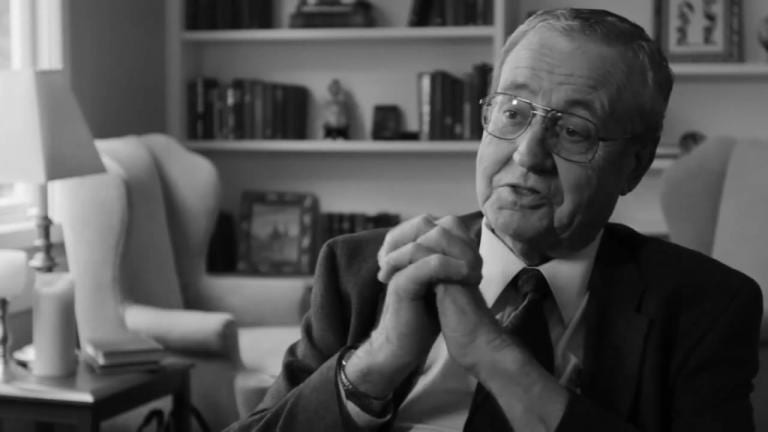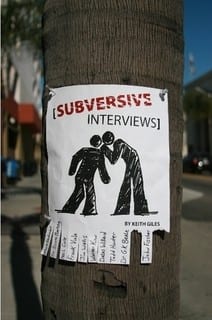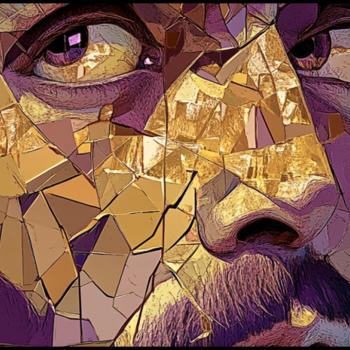
Several years ago, I interviewed author and theologian Dallas Willard for a magazine that never made it to print. Instead, I published this interview in a book called “Subversive Interviews” which also included my conversations with author Walter Kirn [Up In The Air, Thumbsucker, etc.], Matt Redman, Jim Wallis [Sojourners], Neil Cole, Frank Viola and many others.
Here is part one of that conversation with Dallas Willard:

Keith Giles- “Dallas, can you explain the difference between the Gospel of the Kingdom and the more popular, Gospel of the Atonement for us?”
Dallas Willard – “The Gospel of the Kingdom is that you can now live in the Kingdom of God and the Gospel of the Atonement is that your sins can be forgiven. Those are the, respective, ‘Good Newses’, I suppose.”
KG- “So, are you saying there are two Gospels? Are my sins not forgiven if I live in the Kingdom? Or am I not in the Kingdom of God if I accept the Gospel of the Atonement?”
DW- “The way it practically works out is this, if you have the Gospel of the Atonement, and that’s all you’ve heard, the rest of your life you will run on your own and you may or may not think of being a disciple of Jesus or of obeying him or of devoting your life to the Kingdom of God. You can still do that, but those things are all optional for you. That is where we really stand in our Christian culture today. Anything more than forgiveness of sins, and by that I mean ‘Heaven when you die’, is optional and most of our professed believers now do not know that they can live in the Kingdom of God now.
“By contrast, anyone who is alive in the Kingdom of God now knows that their sins are forgiven because they have the life of Heaven in them now. So Heaven and forgiveness are natural parts of the Gospel of the Kingdom of God whereas discipleship and holiness and power and other scriptural evidences are not a natural part of the Gospel of the Atonement. I want to emphasize that sense of being a natural part.
“Here’s one of the ways I try to help ministers understand this difference. I ask them, ‘Does the Gospel you preach truly lead to discipleship to Jesus?’ and the Gospel of the Kingdom has that natural connection. It’s not trusting the Kingdom, it’s about trusting Jesus and living in the Kingdom with Him. So then, for example, the New Birth is the birth from above and as Jesus was telling Nicodemus, “You must be born again..”, now that’s about new life that isn’t just Atonement. One of the strange things that has happened is that verses like John 3:16 is treated as if it were a forgiveness verse whereas it is really a new life verse. The whole context is about having the life of The Kingdom. Nicodemus came saying he could see it and Jesus said, ‘No, you can’t see it’, and helped him to understand why he couldn’t.
“So, it’s the idea of a natural part of The Kingdom containing forgiveness, and if you’re trusting Jesus, and not just his death on the cross alone, but the person of Jesus, then life in the Kingdom comes with that and, as a natural part, also comes discipleship, forgiveness, all of the things that any good theology would cover.”
KG- “So, it seems to me that the reason why the Gospel of the Atonement is the most readily accepted and understood version of the Gospel today, especially in America, is because it’s sort of the fruit of the style of Evangelism we have employed.
DW- “Yes, that’s absolutely right. Now the reason for that, however, is the theology that’s in back of it. We do not evangelize for disciples, we evangelize to make Christians and then, maybe, later try to raise the issue of discipleship. Frankly, that’s like ‘bait and switch’ in advertising. You’ll hear people express that to their pastors and say, ‘Why are you talking about discipleship? I’m right with God. Why are you talking about obedience?’ It’s like I talk about in one of the chapters of my book about an upright citizen of the Church who came to his pastor and said ‘I’m going to divorce my wife because I’ve fallen in love with someone else’ and the pastor, of course, turned purple and said, ‘You can’t do this’, and the man said, ‘Of course I can, you’ve said that Jesus will forgive my sins if I believe he died on the cross.’ There’s honestly no response to this from the theology of atonement only.”
KG- I was teaching on this recently in our home group and I had a woman, innocently, not trying to be argumentative, but honestly puzzled with me on the subject who asked me, ‘What would you say to someone if you wanted to evangelize them? If it’s not about going to heaven when you die, then what is it about?’ It just seems that once you diffuse the idea of the Gospel of the Atonement as being an incomplete version of the Gospel, it kind of leaves us unequipped now. So, how do we witness if the language of the Gospel of the Atonement is not part of my script?
DW- That’s really an excellent question and I hope we can get a very clear answer to it because it naturally comes up because of what people have been taught all their lives. The appropriate question then is, ‘If you don’t die tonight what are you going to do tomorrow?’ and the answer should be, ‘I’m going to trust Jesus with all of my life, with everything, and that will allow you to live in the Kingdom of God.’ Now, if you do die tonight you may go to Heaven, but you see most people are not going to die tonight. They, like the rest of us, have to face life tomorrow and the day after and the day after.
“The big question is, ‘Are you going to live life on your own tomorrow and the day after?’ and if you do then you’re not trusting Jesus. The evangelistic question needs to be varied a bit and I use various formulations for it. For example, if it is appropriate I will say to someone, ‘How are you doing with your Kingdom?’ and that usually opens up the discussion about how they’re handling their lives. I will then let them know that there’s a Kingdom they can live in that belongs to Jesus and that if they will turn their lives over to Him, then they will prosper for time and for eternity, in His Kingdom. That’s the difference.
“It opens up a different landscape on evangelism because it turns out that the people that need to hear the Gospel of Jesus the most are the people who are well off and in charge of a lot of things, not just the guy living in the box in the alley, or the person who is living the life of debauchery. All people desperately need to know about the Kingdom of the Heavens and their life in it. So, that’s how you evangelize, you call people to discipleship by announcing the availability of the Kingdom now. That’s what Jesus did and then when people understood him they also understood that He was the King.”
“The simple Gospel is; ‘Jesus is available to trust and what you need to do is to trust Jesus’. Once you begin to teach this fully then you begin to realize how great Jesus is and that He is actually running the World and that the Cosmos is under His charge. So then, the invitation is to become involved as a disciple.
“One way I try to express what Salvation is is to say ‘It is participating in the life that Jesus is now living on Earth.’ That is why Paul says, in 1 Corinthians 15, for example, ‘If Christ is not risen, your faith is in vain and you’re still in your sins’.
KG- “Right, and also that “..it is not I who lives but Christ who lives in me..”
DW- “Exactly. So, it’s participating in the life that Jesus is now living. Christ in me, the hope of Glory. That was the message to the Gentiles, as reported in Colossians, and that’s the message to everyone. The “Hope of Glory” is the living Christ in you and that’s another way of describing life in the Kingdom of God.
[END OF PART 1]
To see the entire conversation, read “Subversive Interviews” by Keith Giles available here>
**
Keith Giles was formerly a licensed and ordained minister who walked away from organized church 11 years ago, to start a home fellowship that gave away 100% of the offering to the poor in the community. Today, He and his wife live in Meridian, Idaho, awaiting their next adventure.
His new book “Jesus Unbound: Liberating the Word of God from the Bible”, is available now on Amazon and features a Foreword by author Brian Zahnd.
He is also the author of the Amazon best-seller, “Jesus Untangled: Crucifying Our Politics To Pledge Allegiance To The Lamb” with a Foreword by Greg Boyd.
Keith also co-hosts the Heretic Happy Hour Podcast on iTunes and Podbean.
BONUS: Want to unlock exclusive content including blog articles, short stories, music, podcasts, videos and more? Visit my Patreon page.













